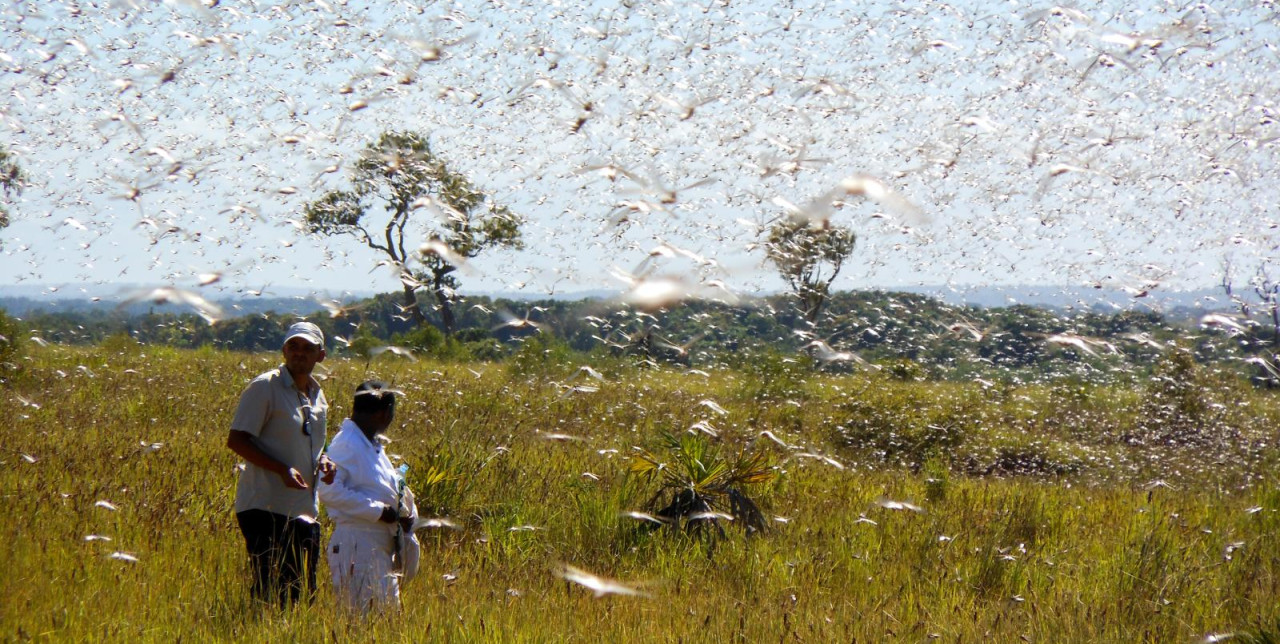18-02-2021 | di COOPI
Ethiopia. Supporting communities affected by the locust invasion
COOPI - Cooperazione Internazionale has supported 5,800 families affected by the Desert Locust invasion in the Afar region of Ethiopia through the FAO-funded project "Emergency Livelihood Assistance to Pastoralist and Agro-Pastoralist Communities".
The project, which ran from June 2020 to January 2021, addressed pasture destruction and food shortages caused by locusts through unconditional cash transfers and the delivery of multi-nutrient feed for milking and breeding animals. These two initiatives have benefited the most vulnerable families in the woredas of Dewe, Dalifage and Mille.
The families were identified through a selection committee, set up by COOPI in collaboration with the regional Department of Agriculture and Livestock and elected by the population itself.
Before providing the cash, the Organization carried out a market assessment, to gather information on the basic needs of the community, to verify the capacity of the market to respond to the cash injection, to identify the best method of cash transfer and anticipate the risks associated with the cash intervention.
Based on the results of the assessment, the Commercial Bank of Ethiopia was chosen to carry out the physical cash transfer and each beneficiary received a one-off transfer of 3,050 ETB (approximately 60 Euros).
To ensure the sustainability of the project, COOPI trained 13 operators and 3 experts in both animal nutrition and unconditional cash transfer. In this way, the beneficiaries will be able to continue to count on the technical support and supervision of experts, even after the activities have ended.
The locust invasion that has plagued East Africa since January last year is believed to be the worst in 25 years. First detected in Somalia, the locust swarms soon reached the neighboring states of Ethiopia, Kenya, Eritrea, Sudan and Uganda, destroying thousands of hectares of crops that are vital to the livelihoods of local communities. According to FAO, the locust is considered the world's most damaging migratory pest, so much so that a small swarm covering one square kilometer can eat the same amount of food as 35 000 people consume per day.
Cover picture ©FAO




 Ethiopia
Ethiopia